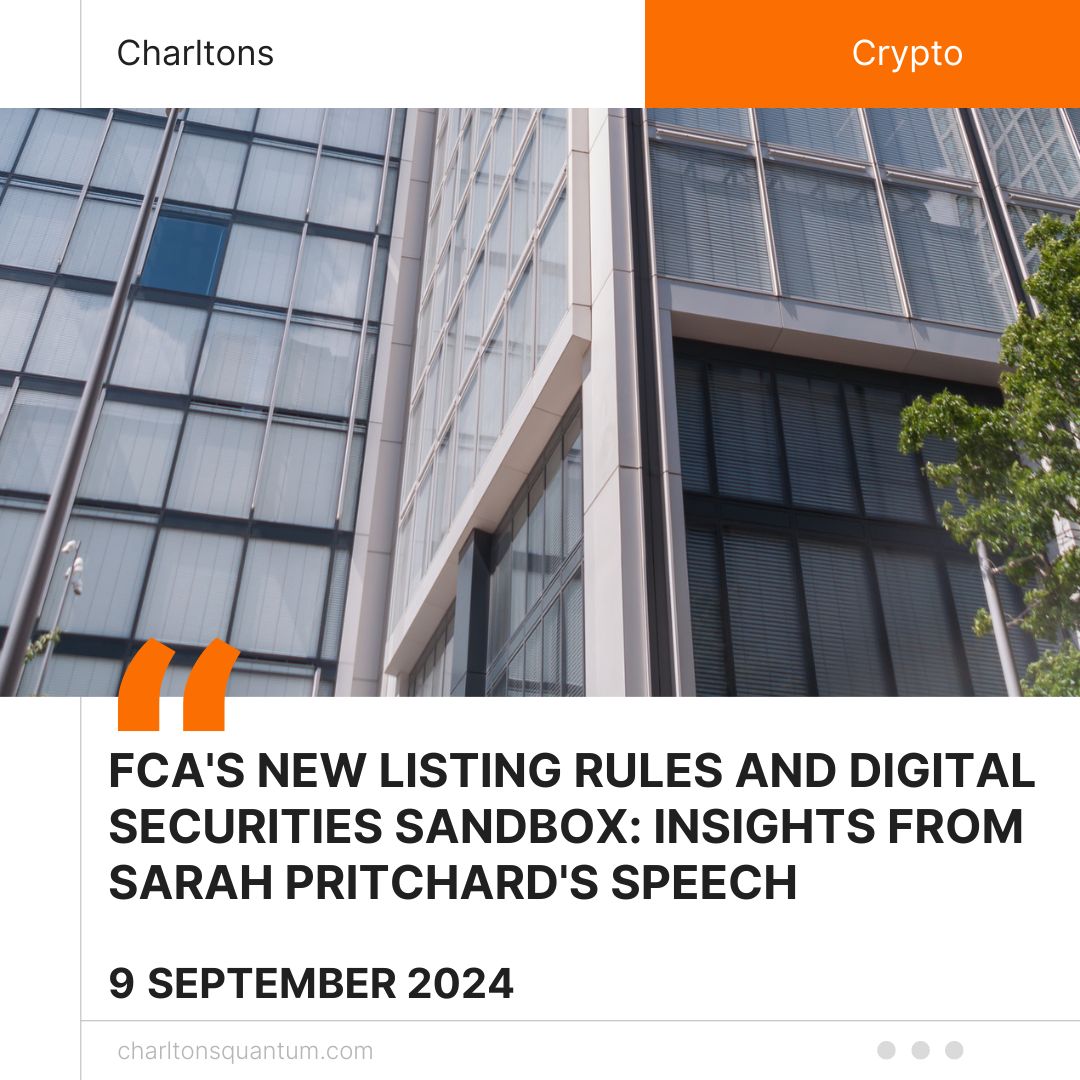
On 6 September 2024, Sarah Pritchard, the Executive Director of Markets and International at the UK’s Financial Conduct Authority (UK FCA), addressed the Capital Markets Industry Taskforce, presenting the UK FCA’s reform agenda aimed at strengthening the UK’s position in global wholesale markets. Pritchard discussed the recent overhaul of the UK’s listing rules, which arguably is one of major changes in over 30 years. These Listing rules reforms are intended to streamline the listing process, reduce regulatory burdens, and attract more companies to the UK’s capital markets.
The new rules, which came into effect on 29 July 2024, simplify the regulatory framework while maintaining high standards of corporate governance and disclosure. Pritchard emphasized that the goal is to empower investors with the right information to make informed decisions rather than enforcing a one-size-fits-all regulatory regime.
In addition to the listing rule reforms, Pritchard elaborated on the UK FCA’s ongoing efforts to simplify the public offers and admissions to trading regime, making it easier and cheaper for companies to raise capital in the UK. The UK FCA has also introduced new rules allowing asset managers greater flexibility in how they pay for investment research, reducing unnecessary operational burdens.
Pritchard made it clear that the UK FCA’s work is far from complete. As part of its strategy to remain agile in a rapidly evolving market, the UK FCA is exploring innovative approaches, including the creation of the Digital Securities Sandbox. This platform will enable companies to test new technologies for trading and settlement in a live regulatory environment.
The Digital Securities Sandbox introduced by the UK FCA is a platform designed to allow financial firms to test new technologies for trading and settling digital securities in a controlled environment. This initiative enables companies to experiment with innovations such as tokenized securities, which represent traditional assets like stocks or bonds in a digital format using distributed ledger technology (DLT). The sandbox provides a space for firms to assess the performance and regulatory compliance of these new technologies before full market implementation.
Digital securities offer potential benefits, including faster transaction times, reduced costs, and increased transparency compared to traditional securities. The sandbox allows firms to explore these advantages in a real-world setting, while also enabling the UK FCA to observe how these technologies function and to better understand their regulatory implications.
The goal of the sandbox is to facilitate innovation within a secure framework, helping firms to develop new products while ensuring they meet regulatory standards. It also helps the UK FCA prepare for future regulatory needs as digital assets become more prevalent in the market.
This initiative is part of the UK FCA’s broader efforts to maintain the UK’s competitiveness in global financial markets by encouraging the adoption of modern financial technologies. Alongside the Private Intermittent Capital Exchange System (PISCES), which helps private companies access capital, the sandbox aims to support growth and innovation within the UK’s capital markets, while maintaining the necessary safeguards for market integrity and investor protection. PISCES allows private companies to raise funds intermittently without the need for a full public listing, creating a more flexible pathway for companies to secure investment while remaining private. This system offers investors opportunities to invest in private firms at various stages of growth, helping companies meet their capital needs as they scale.
Looking ahead, Pritchard noted that success for the UK’s capital markets will be measured by long-term growth and the ability to attract a diverse range of companies to list and grow in the UK.
(Source: https://www.fca.org.uk/news/speeches/fca-new-listing-rules-and-whats-come)





